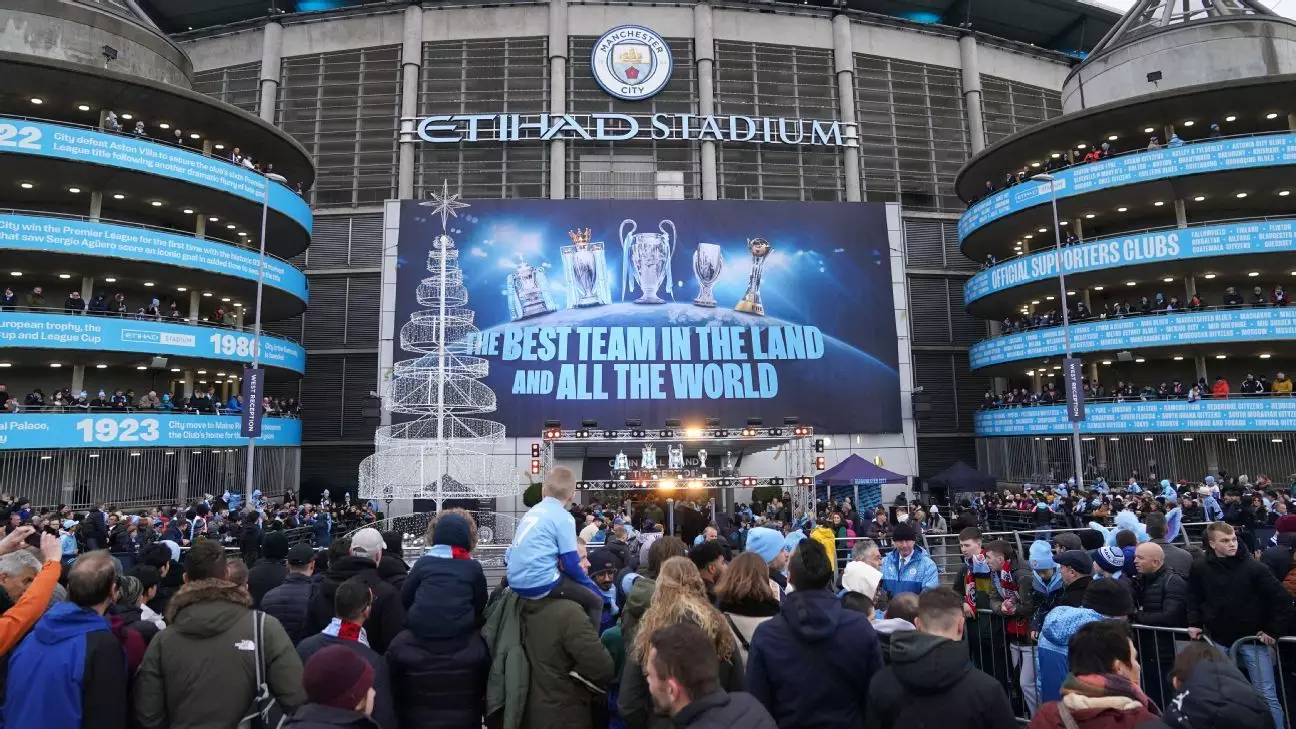On the heels of a tumultuous period for Manchester City Football Club, the long-anticipated hearings into the alleged breaches of Premier League financial regulations are set to commence this week. Described by some as the “sports trial of the century” in British media, the significance of the hearing extends well beyond the confines of the club itself, potentially reshaping the landscape of English football. The independent commission, composed of three members, will dissect a plethora of evidence over an estimated ten weeks, heralding a phase of scrutiny that could result in severe repercussions for one of the most successful teams in recent history.
The charges brought against Manchester City are formidable, spanning from 2009 to 2018 and alleging a total of 115 violations. These include failing to provide accurate financial disclosures and not fully disclosing remuneration details for players and management, among other accusations. City’s response has consistently been one of denial, asserting innocence in light of the allegations. However, the sheer volume of the charges suggests a seriousness that cannot be easily dismissed.
Mistakes from the Past: City’s Troubles with Financial Fair Play
While this is not the first encounter City has had with allegations of financial misconduct, it marks a significant escalation in the challenges facing the club. The last major incident occurred in 2020 when UEFA imposed a two-year ban from the Champions League after determining that City had overstated sponsorship revenue from 2012 to 2016. However, following an appeal, the Court of Arbitration for Sport overturned that ban, allowing City to resume participation in European competitions.
Nonetheless, the ongoing scrutiny is bound to cast a shadow over the club as they strive for yet another Premier League title—their fifth in a row, no less. The potential ramifications of these hearings are vast; should the verdict prove unfavorable, City could face severe penalties such as hefty fines, points deductions, or even relegation. Such consequences would not only tarnish the achievements made since Sheikh Mansour’s acquisition of the club in 2008 but would also raise questions regarding the legitimacy of their success.
In light of the forthcoming hearings, the club’s managerial chief, Pep Guardiola, has publicly expressed support for the ongoing legal process. Emphasizing the principle that every individual is “innocent until proven guilty,” Guardiola maintained optimism regarding the panel’s impartiality. He echoed the sentiments of many within the club, hoping for a swift resolution to an ordeal that has consumed much of City’s recent narrative.
Guardiola’s comments underscore a critical aspect of this ongoing saga: the psychological toll it exerts on players. The uncertainty of the trial could lead to distractions at a crucial point in the season; however, the team’s continued success on the pitch remains paramount. Guardiola appears to focus on maintaining morale and performance during this turbulent period, even as they are subjected to external pressures.
As the hearings unfold, the ripple effects will extend to the entire Premier League. Teams like Everton and Nottingham Forest have already faced points deductions due to breaches of financial regulations. The integrity of the league is at stake, as clubs increasingly scrutinize each other’s financial practices. A fair outcome from this hearing could set a precedent for how financial rules are enforced across the league.
Moreover, it raises pertinent questions about the relationship between wealth, investment, and competitive balance. The verdict will reveal whether Manchester City can continue as they have been operating or if stricter enforcement will lead to a paradigm shift among clubs that navigate the fine line between ambition and compliance.
With the hearing set to commence, the intricacies of financial regulations in football will be under scrutiny as they never have been before. The Premier League’s independent commission will meticulously evaluate the evidence presented, with a verdict likely before the end of the current season. Regardless of the outcome, this saga is emblematic of a growing demand for accountability in sports, signaling that the age of unbridled financial maneuvering may soon come to an end.
The world of football watches intently, with each passing day amplifying the stakes for Manchester City, rival clubs, and fans alike. In an era where financial prowess is often equated with success, the principles of fairness and integrity must take center stage. The verdict of this case may very well dictate the future of not just Manchester City, but the entire landscape of English football.
